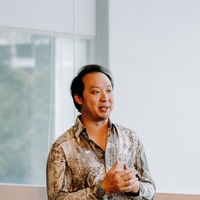DEBUNKING MYTHS ON CODING BOOTCAMPS IN SINGAPORE
Hey there, how’s it going? At the time of writing this, the times are tumultuous to say the least and the days seem endless and harsh. So before we get into the meat and bones of debunking some common myths, take a deep breath, remember that we can get through this together, and to quote the famous lyricist:
“The sun will come out tomorrow”
Coding bootcamps aren’t exactly a new phenomenon. Various camps and institutions have developed their curriculum and solutions to cater to the demand of the ever-developing technological landscape.
In Singapore, the projected demand for Infocomm professionals is expected to grow by an additional 61,600 from 2019 – 2021 according to a report by IMDA, including Software Developers and Data Analysts. And while COVID-19 has impacted the world in unprecedented ways, the tech industry has been able to shrug off most of its effects, with more business coming in for e-commerce platforms, gaming companies and the likes. Some tech companies are even expanding their hiring efforts in the wake of this pandemic.
So you’ve heard or read a little about these bootcamps and maybe thinking of making that switch too, but how easy is it to learn a whole new skillset in just a couple of months? Can you find a job immediately, working at the likes of Google or Facebook? And how could you possibly match up against existing Computer Science graduates coming out from NUS or NTU? Well, the answers to these questions may surprise you, or not, you don’t have to admit it, but we hope to shed just a little bit more light on some of these myths.

MYTH #1: CODING BOOTCAMPS ARE BETTER THAN TAKING A UNIVERSITY DEGREE
Here are a few things you may have heard about the two different sides:
- Bootcamps are cheaper on average compared to a local Computer Science (CS) degree, that’s just a fact. For a quick plug, our Fullstack Bootcamp costs just $3,450 after subsidies, compared to a $32,800 CS degree at NUS or NTU. (more info here)
- Bootcamps are also far shorter, even if it’s a part-time programme, compared to a standard 4-year CS degree. To show that we aren’t being completely biased, take a look at some of the other coding bootcamps like General Assembly or Le Wagon and you’ll find that a fullstack / data science bootcamp ranges from 9 weeks (full-time) to 28 weeks (part-time). The opportunity costs are immense!
- The curriculum is pretty different, bootcamps tend to focus on the application of languages that you would tend to use in your job, while local universities are much more comprehensive in helping you understand the concepts and theories that drive the code, giving you a stronger foundation. (more on the different stacks here)
Now you might be thinking, obviously something cheaper and shorter that helps you to get a job as a software developer is clearly the superior choice, but we’re just getting started. For instance, the 4 years of studies isn’t just for show, the theoretical knowledge that you stand to gain from a CS degree helps immensely in the long run of learning and approaching projects.
This means paying your dues and learning about algorithms (aka A maths 2.0), data structures and other topics peripheral to software development. Overall a degree lays down the groundwork needed to excel, not just as a software developer but in various other technical jobs in the market as well.
BUT, and this is a key ‘but’, that doesn’t mean you can’t be a Software Developer as a bootcamp graduate. On the contrary, the focus on the practical applications of coding means that you would get the hands-on experience needed to acclimatise to working in your role. How does this match up against CS degree holders? Fairly equivalent as it turns out from this report on how degree holders and bootcamp grads fared in their technical interviews.
SUMMARY: Neither is better than the other, they each have different priorities in their curriculum and are also catered for people in different life stages as well (mid-career switchers vs undergraduates), so it depends on what your priorities are at the point when you are making a decision.
Here are some additional reads on this that you might find useful:
Coding Bootcamps vs CS Degrees – 5 Main Differences
Coding Bootcamps vs Universities – Is Coding Bootcamp the New Norm?

MYTH #2 YOUR LEARNING IS COMPLETE WHEN YOU FINISH A CODING BOOTCAMP
We believe that learning is a constant state we’re in, and this goes doubly so if you’re looking at a career in software development. Speak to any graduate and they can share with you about the various languages they’ve had to pick up and adapt to after settling into a new role or job.
This doesn’t mean that what you learn in a bootcamp is obsolete. At the end of the day, you still pick up how coding works, what goes into the setup of a website and what are the methods and steps to take when conducting data analytics, just to name a few. You also learn how to carry out these tasks with languages that are easier to grasp before taking on some of the more challenging ones out in the market.
Plus, with how fast coding languages develop and are released, it wouldn’t be too surprising if the industry-standard languages taught and used in the market get replaced within the next couple of years. That’s why learning a coding language also comes with learning its syntax, or how its language is structured, so that you can then see how other languages are structured and thus picking them up easier and make your own discernments.
SUMMARY: Learning in a bootcamp is like learning to ride a bike with training wheels. You first get the support that you need in learning how to code, and once you graduate the training wheels come off, you’re free to ride how you want to, learn other languages that you want to use. Sure you might crash a couple of times, but that’s just part of the journey, you pick yourself up and you go again. This wasn’t supposed to turn into an inspirational movie quote though.
We’ve got more myths in-store, but we wanted to give all of you the opportunity to vote for the next myths we take a look at next month. If you want to find out what are your actual chances of getting hired by Google, Facebook and other top tech firms after taking a bootcamp, head on to our facebook page and let us know on our poll.
/assets/images/5933614/original/91b8259e-f752-4584-961a-46829e43aac1?1647231529)


/assets/images/5933614/original/91b8259e-f752-4584-961a-46829e43aac1?1647231529)




